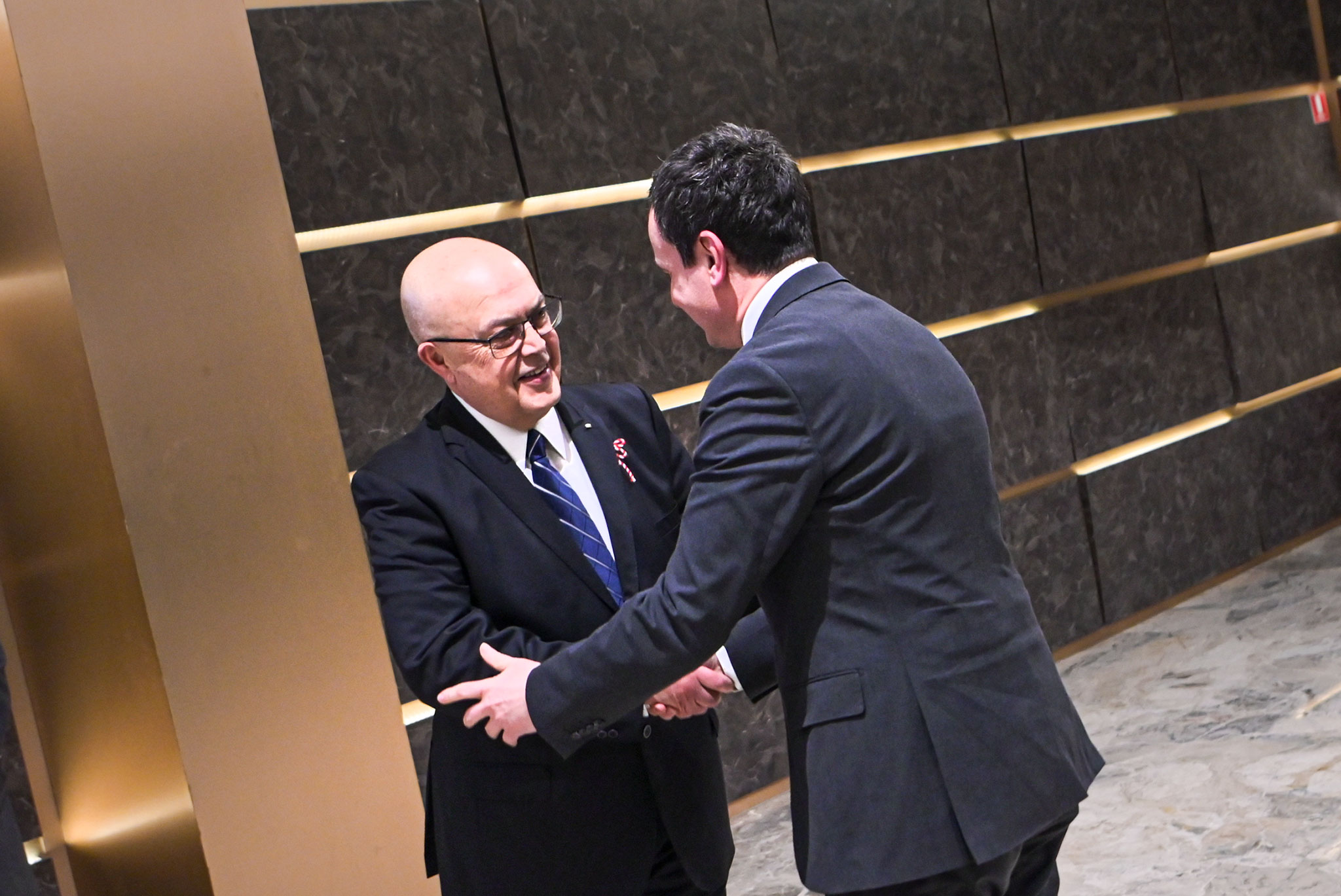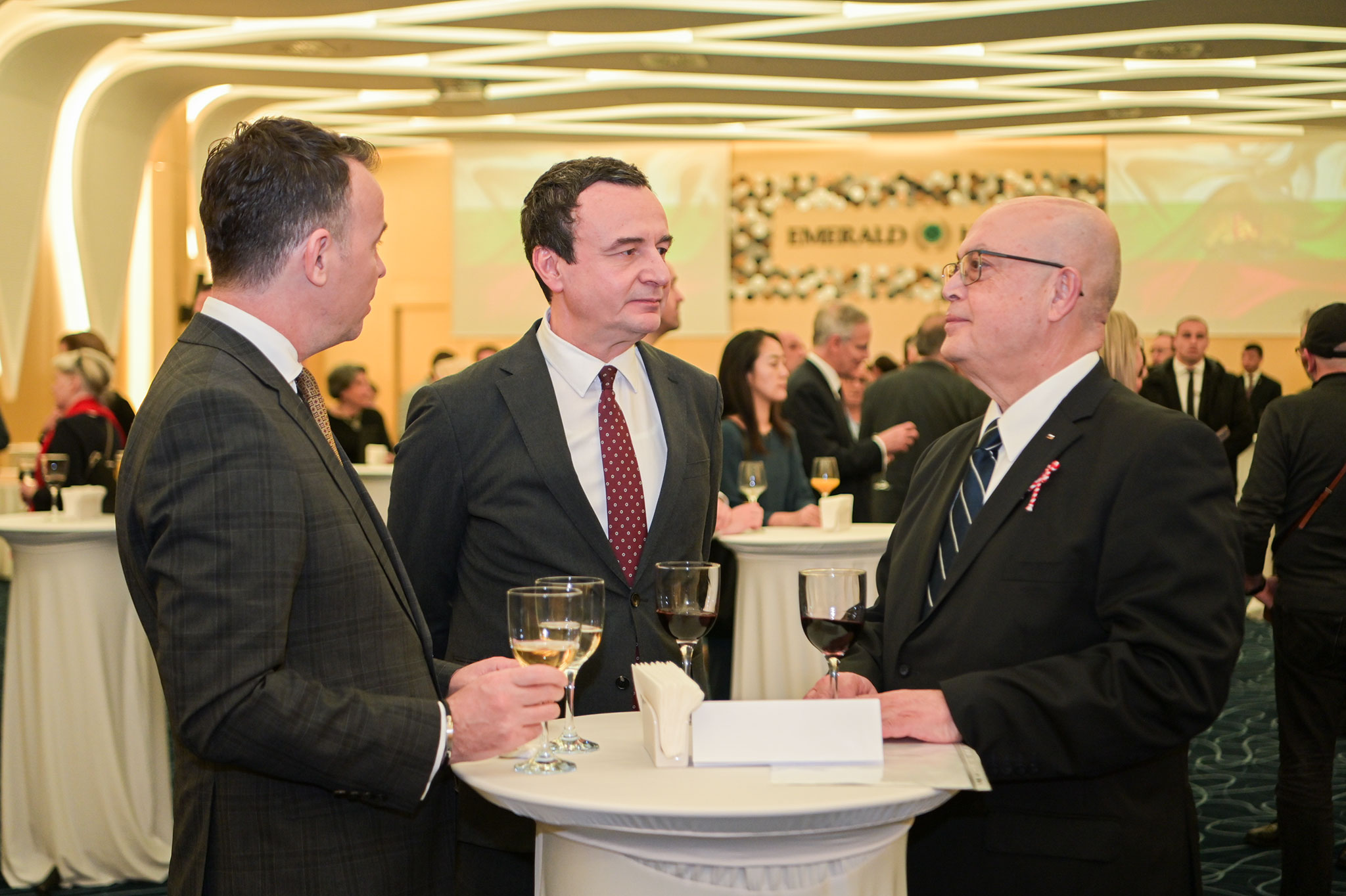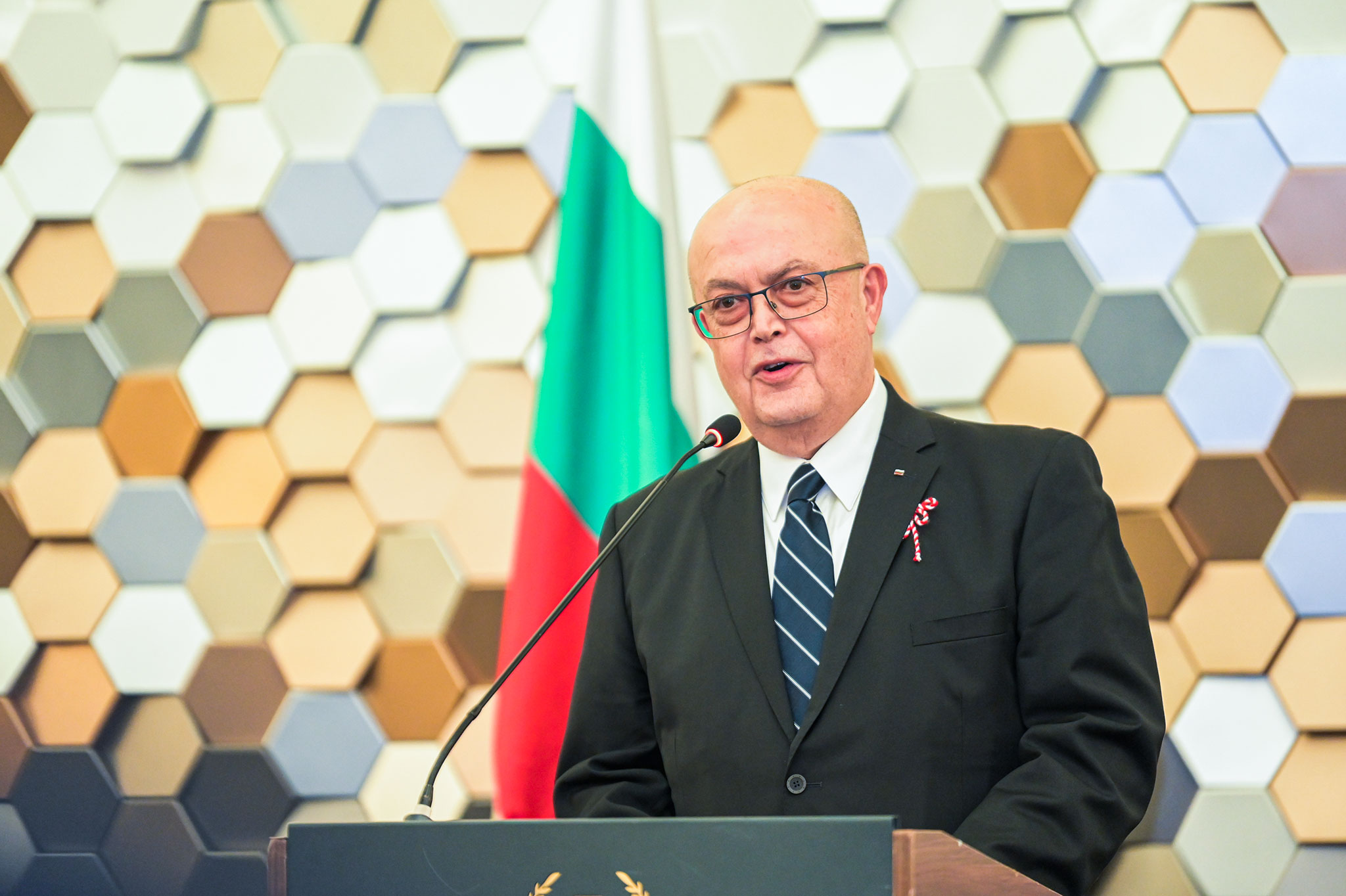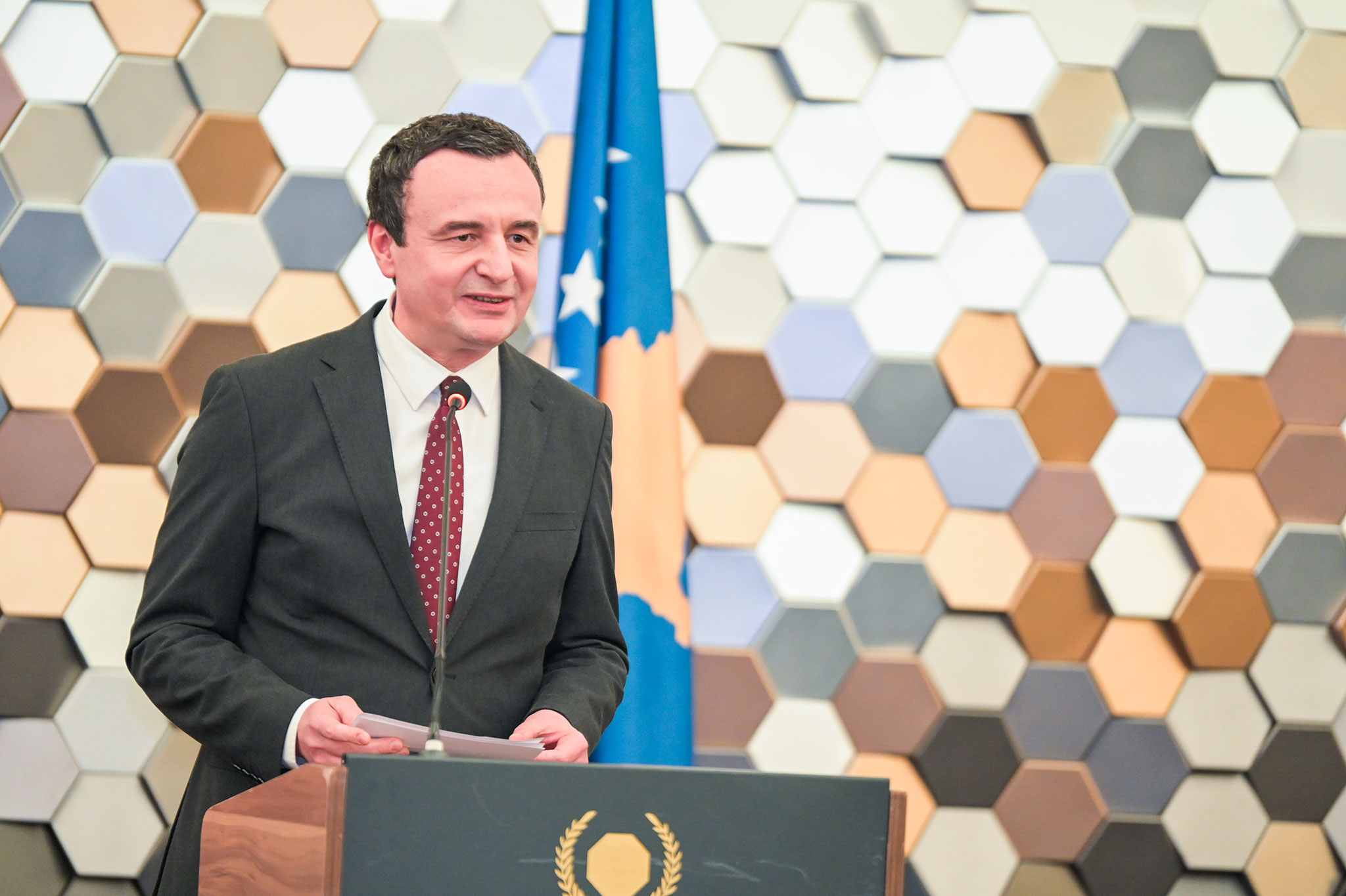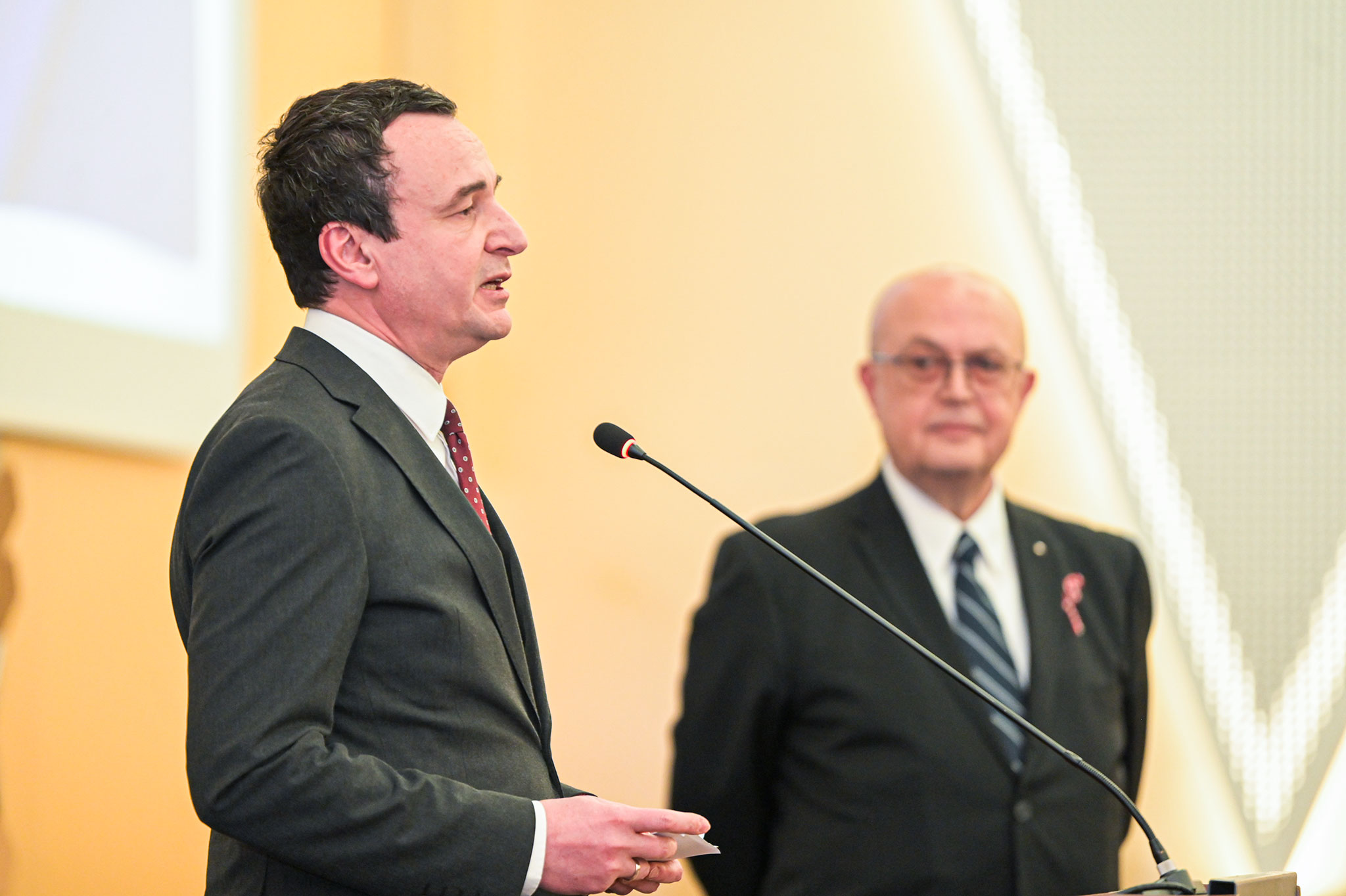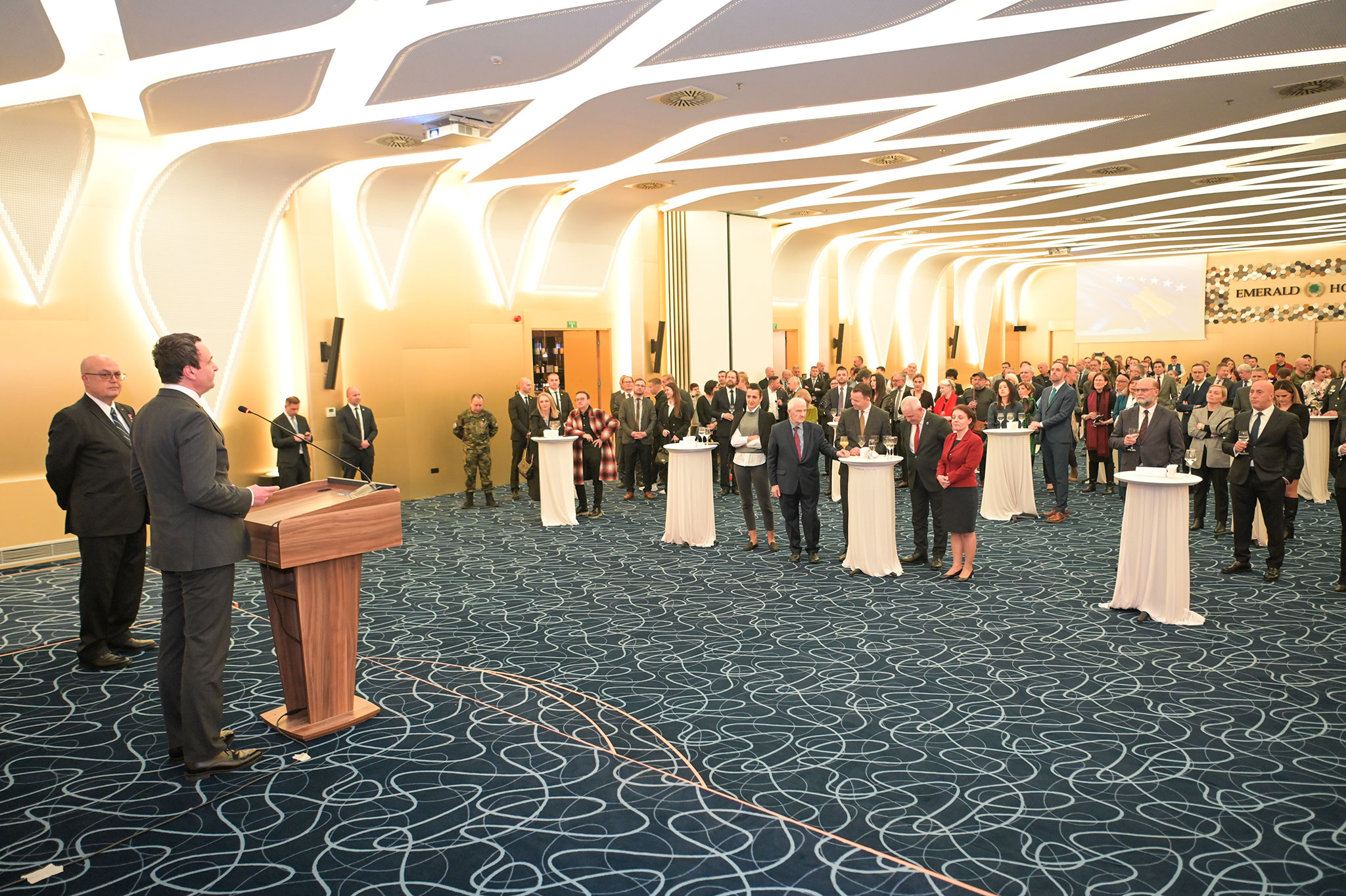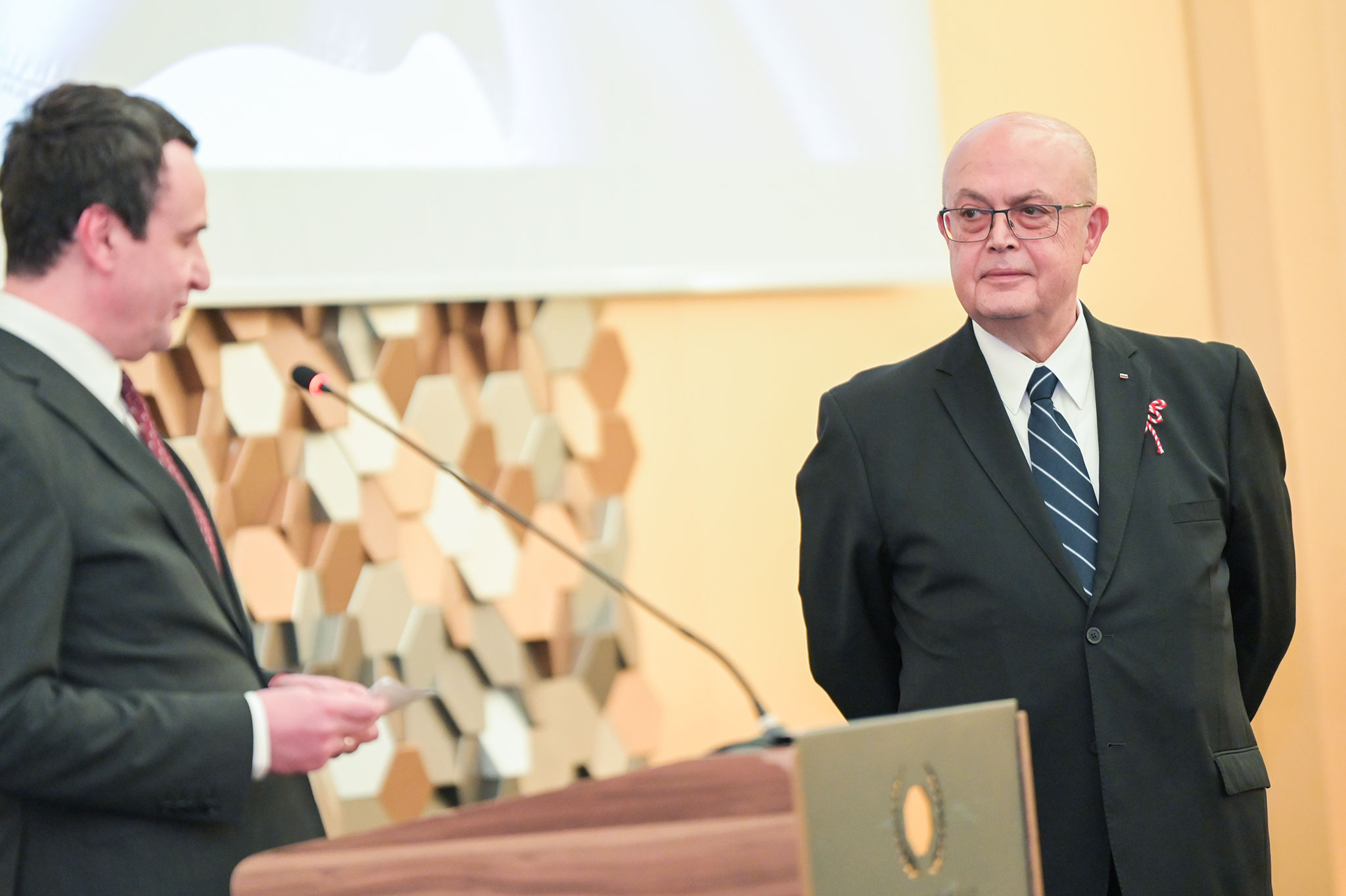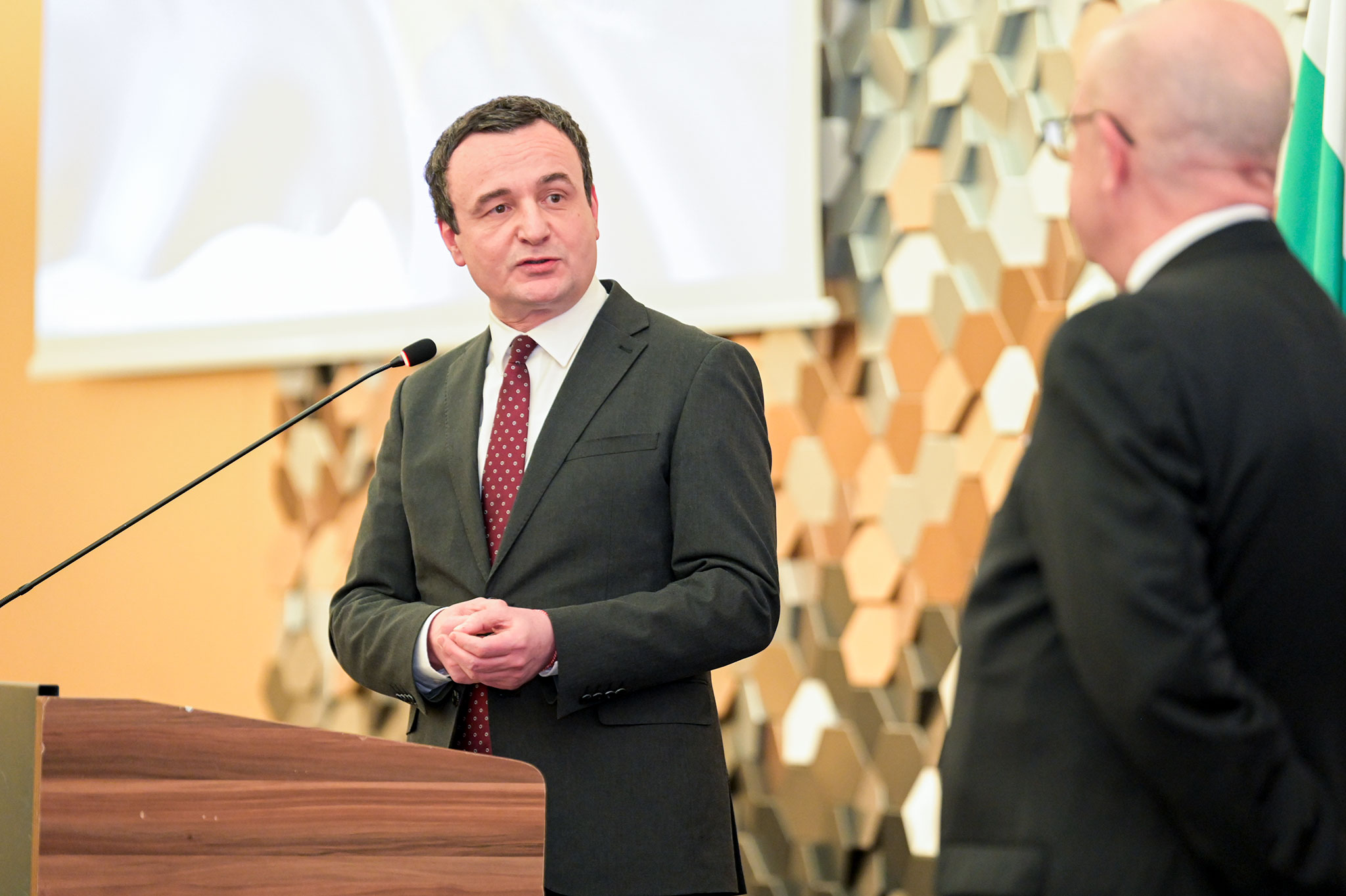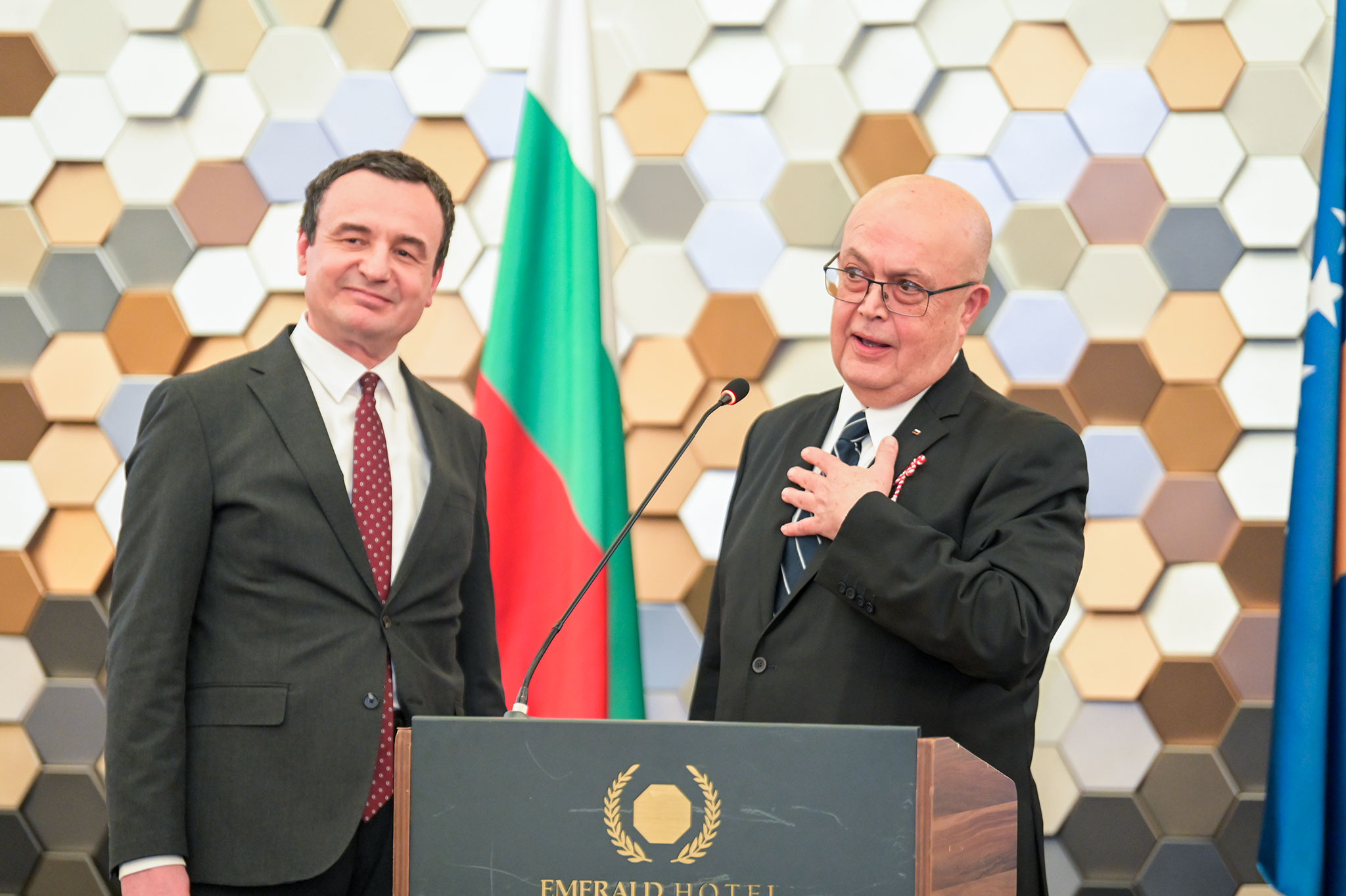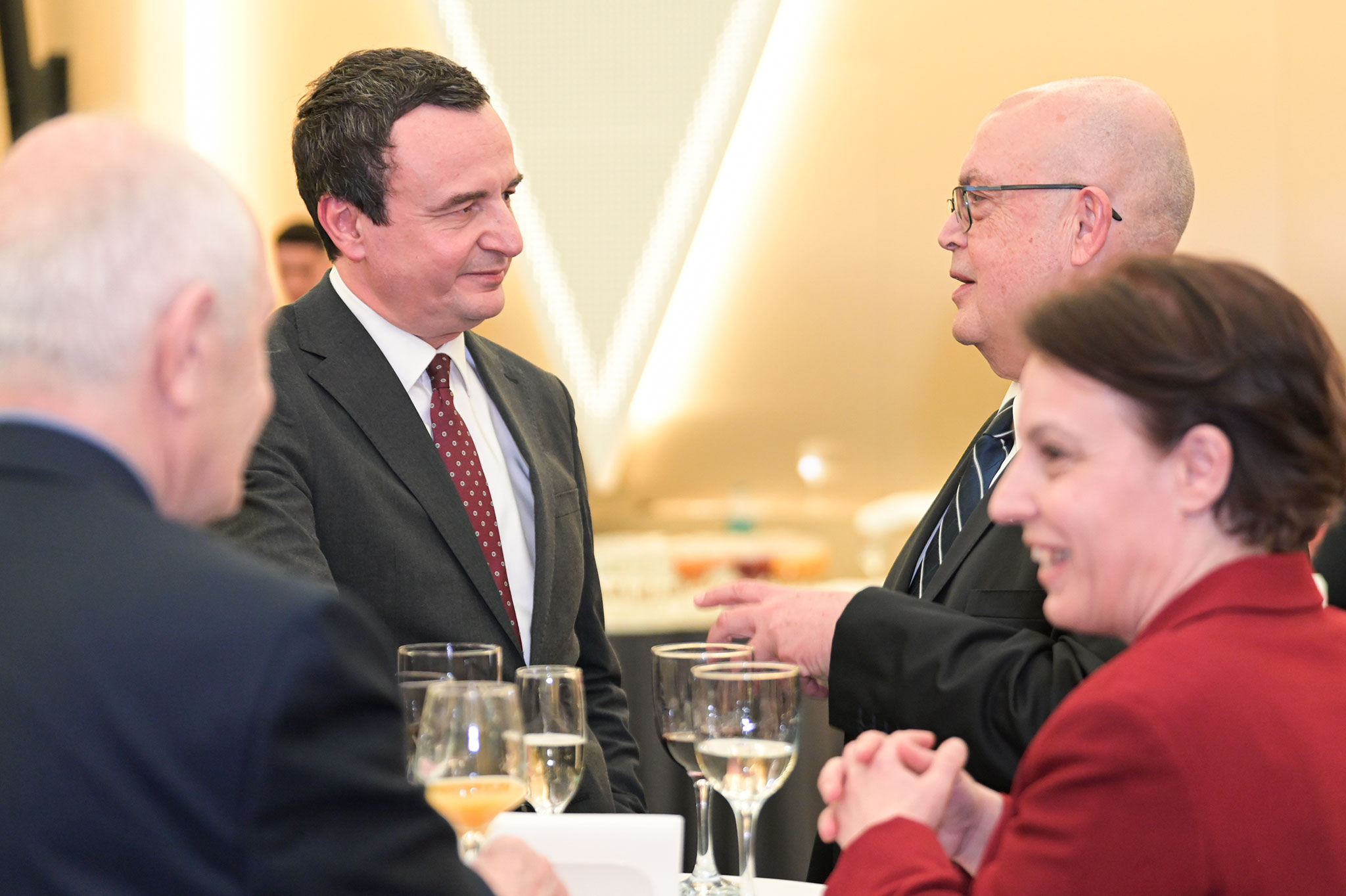Prishtina, 5 March, 2024
The Prime Minister of the Republic of Kosovo, Albin Kurti, participated in the reception organized by the Embassy of Bulgaria in Kosovo and Ambassador Hristo Gudjev, on the occasion of their national holiday.
Also present at this event were the Deputy Prime Minister and the Minister of Foreign Affairs and Diaspora, Donika Gërvalla-Shwarz, the former President of the Republic of Kosovo, Fatmir Sejdiu, as well as deputies and ambassadors accredited in our country.
In his speech, the prime minister said that the friendship between Kosovo and Bulgaria and the institutional cooperation between our countries are already official policies of our two states, announced and widely discussed in official meetings and with the heads of the Bulgarian state.
“Our country, Kosovo, and our allied country, Bulgaria, are also united by our orientation towards democracy and the rule of law, at a time when the autocrats of the region are being encouraged to endanger democratic values”, said the Prime Minister.
He also reminded that this year Kosovo will mark the 25th anniversary of our liberation and on this occasion, he thanked Bulgaria for opening its airspace to NATO planes in 1999 during the bombing campaign over Serbia – a campaign that ended the genocide against Kosovo Albanians.
“Also, Kosovo has not forgotten that it was the Bulgarian authorities who first discovered Operation “Horseshoe” – Serbia’s plan for the ethnic cleansing of Albanians from Kosovo. Days of National Liberation, such as the day of the Liberation of Bulgaria and the day of the Liberation of Kosovo that we will mark in June, are occasions in which we must also remember the history of how our peoples were freed, because remembering how we won our freedom, we will also know how to protect it”, said the prime minister.
Prime Minister Kurti’s complete speech:
Dear Deputy Prime Minister and Minister of Foreign Affairs and Diaspora, madame Donika Gërvalla-Schwarz,
Your excellency ambassador Hristo Gudjev, ambassador of the Republic of Bulgaria,
Dear Mr. Fatmir Sejdiu, President of the Republic of Kosova at the time when we declared independence 16 years ago,
Dear ministers of the Government and members of Parliament,
Honorable ambassadors of the accredited diplomatic corps in the Republic of Kosova,
Distinguished guests,
Ladies and gentleman,
We are gathered here tonight upon the invitation of the Bulgarian Ambassador to Kosova, Mr. Hristo Gudjev, at this reception of the Embassy of Bulgaria in our country. The third of March marks the National Day of Bulgaria, or the Liberation Day of Bulgaria, referring to the 3rd of March, 1878, when in San Stefano, a village to the west of Istanbul, the Ottoman and Russian empires signed a peace treaty that ended the ten-month war between them. One of the articles of the Treaty of San Stefano provided for the recognition of an autonomous Bulgarian state, the Principality of Bulgaria, which from then on would still be under suzerainty of the Ottoman Empire.
For Albanians, the Treaty of San Stefano was very unfavorable, because it divided territories inhabited by us, among the new Balkan states that were being formed at the time. That treaty was superseded by the Treaty of Berlin, signed four months later on July 13, 1878, and according to that treaty, some Albanian cities and regions were annexed by the Balkan states, but at least it did some good, it was less bad, so to speak. The work of the Great Powers at the Congress of Berlin encouraged Albanian patriots to gather and found the chief organization of the national movement: The League of Prizren. From then on, Albanians and Bulgarians went on similar paths and processes to be liberated from the Ottoman Empire, which we had been a part of since the 14th and 15th centuries. Armed rebellions followed, along with books of history and literature published in the native languages to increase the levels of national consciousness, and many battles and attempts, until Bulgaria declared independence on October 5, 1908, and Albania four years later, on November 28, 1912.
During those difficult years, when our peoples were fighting for their freedom, armed Bulgarian and Albanian groups communicated and collaborated frequently with one another. The Bulgarian and Albanian patriotic movements in the Vilayet of Kosova determined one another in the context of that time in the Ottoman Empire — as I read in a book that Ambassador Gudjev gave to me, a few months ago, “The Ilinden-Preobrazhenie uprising of 1903 through the lens of the European diplomats”.
The people of Kosova and people of Bulgaria went through communist dictatorships during the 20th century, before embarking on accession to the EU and NATO in the 21st. Bulgaria has reached these two international destinations, becoming member of NATO in 2004 and the EU member in 2007, whereas our country Kosova is still on the path toward this Euro-Atlantic alliance and this European Union. Along this way, Kosova has often been helped by Bulgaria, and we anticipate that Bulgaria will help Kosova even further in our path toward membership in international organizations.
The friendship between Kosova and Bulgaria, and the institutional cooperation between our countries, are now official policies of our two states, publicly announced and discussed thoroughly in my several meetings with current Prime Minister Nikolai Denkov and his predecessor Kiril Petkov and likewise with the President of Bulgaria, Rumen Radev, just three months ago, when we received him for a visit in Prishtina at the end of 2023.
We agreed to work together in the areas of security, economy, energy, education, and tourism. Our country, Kosova, and our allied country, Bulgaria, are brought together as well by our orientation towards democracy and rule of law, at a time when the region’s autocrats are being encouraged to endanger democratic values.
This year, Kosova will mark the 25th anniversary of our liberation. On this occasion, I want to thank Bulgaria for opening its airspace to NATO airplanes in 1999 during the bombing campaign over Serbia — a campaign that put an end to the genocide against Kosova Albanians. Likewise, Kosova has not forgotten that it was precisely the Bulgarian authorities who first uncovered Operation “Horseshoe” – Serbia’s plan to ethnically cleanse Albanians from Kosova. National Liberation Days such as the Liberation Day of Bulgaria, and the Liberation Day of Kosova, which we will mark in June, are occasions on which we must also remember the history of how our people were liberated, because by remembering how we won our freedom, we will also know how to defend our freedom.
In the end I want to thank his excellency for giving me this thread that he holds in his jacket, of Baba Marta, Martenitsas, first of march, month of spring, when aliveness springs out each year, and if I’m not mistaken the white stands for purity and longevity, and the red for good health and abundance.
Therefore, thank you and Happy Bulgarian Liberation Day! Na zdrave, cheers to good health!

